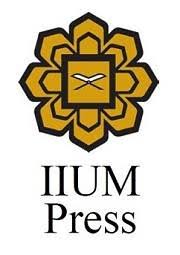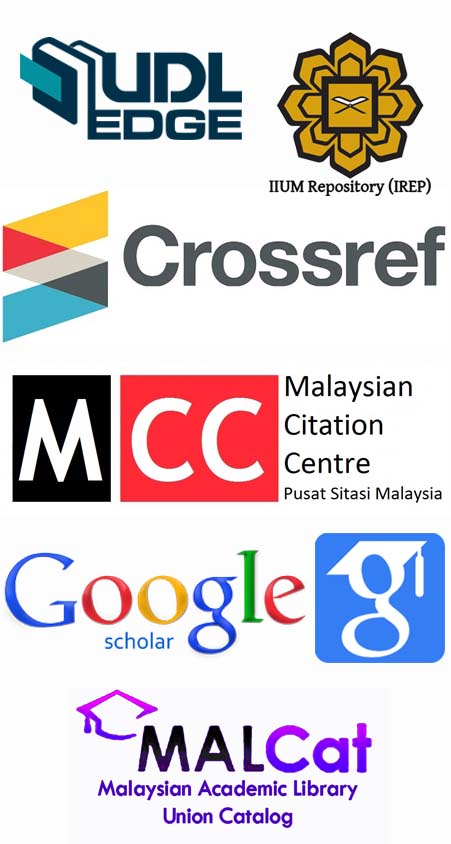The Concept of Rote Learning and its Applications in the Teaching and Learning of Qurʾān and Sunnah.
DOI:
https://doi.org/10.31436/alburhn.v4i2.192الكلمات المفتاحية:
Memorization، Taxonomy، Meaningful learning، Rote learning، Islamic educationالملخص
Rote learning is characterised as a method of memorising facts, ideas, concepts, or information based on repetition to achieve an outcome of learning. Rote learning (memorisation by repetition) has both benefits and drawbacks, depending on the way it is applied. For instance, when meaningful learning is the goal, remembering becomes a means to an end. Whereas, when the goal is on knowledge acquisition, the focus becomes solely on remembering elements or fragments of knowledge. However, the current Western perspective on rote learning, from the lens of traditional Islamic education, has been unfavourable and misleading. In the West, this method is seen as making the learners passive and susceptible to religious and political indoctrination. Therefore, this study aims at investigating the function of memorisation method as a means to promote meaningful learning, in the teaching and learning of Qurʾān and Sunnah. It also seeks to examine the application of revised taxonomy in the learning of Qurʾān and Sunnah, as well as other related sciences. This is a library-based research, and therefore, qualitative in nature. The researcher employs an intensive and extensive survey of the works relevant to the study. Furthermore, a cursory survey on the application of the revised taxonomy to the learning of Qurʾān and Sunnah and other related sciences was also carried. Findings from this study revealed that memorisation method as applied to Islamic education is not an end in itself, rather a means to an end, i.e. meaningful learning. A thorough examination on the application of revised taxonomy to the learning of Qurʾān and Sunnah and other related sciences would further support this finding.
التنزيلات
المراجع
Abraham, Reem Rachel, and Ramnarayan Komattil. “Heutagogic Approach to Developing Capable Learners.” Medical Teacher 39, no. 3 (2017): 295–99. https://doi.org/10.1080/0142159X.2017.1270433.
Al-Khaledi, Khaled. “Education and Methods of Teaching in Islam in the Era of Az-Zarnooji.” Al-Majmaʻ 89, no. 231 (2011): 1–90.
Al-Sharaf, Adel. “Developing Scientific Thinking Methods and Applications in Islamic Education.” Education 133, no. 3 (2013): 272–82.
Bangura, Abdul Karim. “Tirbyi in the Muslim World, with a Focus on Saudi Arabia.” Online Submission, 2004.
Chris Watkins and PeternMortimore. Pedagogy: What Do We Know? In M. Peter (Ed.), Understanding Apedagogy and Its Impact on Learning. Edited by Peter Mortimore. 1st ed. London: A Sage Publications Company, 1999.
Daniel Muijs and David Reynolds. Effective Teaching: Evidence and Practice. 2nd ed. London: SAGE Publications, 2005.
Ertmer, Peggy A and Newby, Timothy J. “Behaviorism, Cognitivism, Constructivism: Comparing Critical Features From An Instructional Design Perspective.” Performance Improvement Quarterly 26, no. 2 (2013): 43–71.
Giladi, Avner. “Individualism and Conformity in Medieval Islamic Educational Thought: Some Notes with Special Reference to Elementary Education.” Al-Qanṭara 26, no. 1 (2005): 99–121.
Gilani-Williams, Fawzia. “Islamic Critical Theory: A Tool for Emancipatory Education.” International Journal of Islamic Thought 5 (2014): 16.
Hardaker, Glenn and Sabki, Aishah Ahmad. Pedagogy in Islamic Education: The Madrasah Context. Emerald Group Publishing, 2018.
Hase, Stewart and Kenyon, Chris. “Moving from Andragogy to Heutagogy in Vocational Education.” Graduate College of Management Papers, 2001, 142.
Hase, Stewart. “An Introduction To Self-Determined Learning (Heutagogy).” In Experiences in Self-Determined Learning, edited by Stewart Blaschke, Lisa Marie and Kenyon, Chris and Hase, 15–30. CreateSpace Independent Publishing Platform, 2014.
Hefner, Robert W and Zaman, Muhammad Qasim. Schooling Islam : The Culture and Politics of Modern Muslim Education. Princeton University Press, 2010.
Huda, Miftahul. “Life Long Education in Islamic Perspective.” International Journal of Nusantara Islam 7, no. 1 (2019): 4048.
Kadi, Wadad. “Islam and Education: Myths and Truths.” Comparative Education Review 50, no. 3 (2006): 311–24.
Mayer, Richard E. “Rote Versus Meaningful Learning.” Theory into Practice 41, no. 4 (2002): 226–32.
Rivauzi, Ahmad. “The Development of Learning Model With An-Nafs Learning Theory.” Al-Ta Lim Journal 25, no. 3 (2018): 248–61.
Rosenthal, Franz. Knowledge Triumphant: The Concept of Knowledge in Medieval Islam. Brill, 2007.
Waghid, Yusef. “Islamic Education and Cosmopolitanism: A Philosophical Interlude.” Studies in Philosophy and Education 33, no. 3 (2014): 329–42. https://doi.org/10.1007/s11217-013-9390-3.
التنزيلات
منشور
كيفية الاقتباس
إصدار
القسم
الرخصة
In general, reusing or reproducing substantial portions of al-Burhān content requires permission. This includes the use of text, figures, tables, multimedia content, and any other material published in any issues of al-Burhān Journal of Qur'an and Sunnah Studies. For some instances, al-Burhān may make its content freely viewable; however, such material may require permission for reuse. To seek permission, please contact the editorial.









